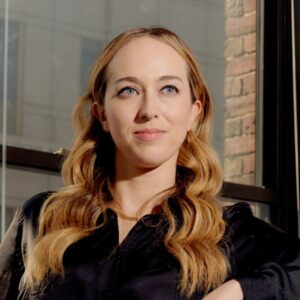KEYNOTE TALK SERIES

Sarah Nagy
(Founder/CEO , Seek AI)
Bio: A former quant and data scientist, Sarah Nagy founded an analytics automation startup, Seek AI, in September 2021. Sarah most recently led the consumer data team at Citadel’s Ashler Capital, and prior to Citadel, led the quant arms at two successfully exited startups and developed algorithmic trading strategies at ITG. Sarah has a Master in Finance degree from Princeton and dual bachelor’s degrees in Astrophysics and Business Economics from UCLA.
Title of talk: Reimagining Data and Analytics in the AI Age
Abstract: A session documenting the data and analytics boom of the 2010s and where the dream succeeded and fell short. The session will then reframe the dream of data and analytics in the context of AI, and why it is poised to be one of the most important and impactful use cases for businesses in the coming years.
Important Deadlines
| Full Paper Submission: | 1st September, 2025 |
| Acceptance Notification: | 15th September, 2025 |
| Final Paper Submission: | 29th September, 2025 |
| Early Bird Registration: | 22th September, 2025 |
| Presentation Submission: | 6th October, 2025 |
| Conference: | 22 - 24 October, 2025 |
| Full Paper Submission: | 1st September 2025 |
| Acceptance Notification: | 15th September 2025 |
| Final Paper Submission: | 29th September 2025 |
| Early Bird Registration | 22th September 2025 |
| Presentation Submission: | 6th October 2025 |
| Conference: | 22 - 24 October 2025 |
Previous Conference
Sister Conferences
Search
Announcements
- Best Paper Award will be given for each track.
- Conference Record no-
